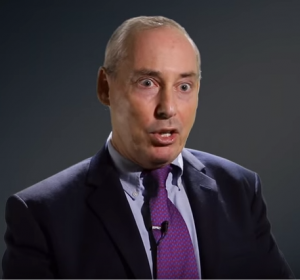Anger, Inequality and #Election2016
Anger and inequality propel much of the discussion and explain much of the division among the 2016 presidential candidates and their potential voters. A few days before the Iowa caucuses take place, USC experts on politics, social and policy issues, and tax reform weigh in.
Contact: Emily Gersema at (213) 740-0252 or gersema@usc.edu
Primary Participation
“One of the things we’ve seen in our USC Dornsife/LA Times poll over the last few years … is how angry, how frustrated and how dissatisfied most voters are — voters in both parties. When they get dissatisfied and when they get angry, they start looking for unconventional alternatives.”
Dan Schnur is the executive director of the Jesse M. Unruh Institute of Politics at USC Dornsife College of Letters, Arts and Sciences, which conducts the Dornsife/Los Angeles Times poll. Schnur is a campaign strategist and polling expert who has insight into how primary participation can help or harm a candidate.
* Watch more of the video here.
Contact: (213) 740-8964 or schnur@usc.edu
Expert At The Caucuses
Christian Grose, an associate professor of political science at USC Dornsife, will be in Iowa for the caucuses which will take place on Monday, Feb. 1.
Contact: cgrose@usc.edu or contact Emily Gersema at (213) 361-6730 to set up an interview.
Economic Inequality
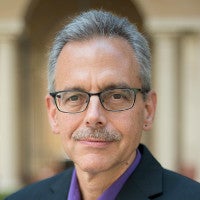 “You do find Bernie Sanders talking more about the 1 percent than a broad economy and Hillary Clinton perhaps talking a bit more about the broad economy than the 1 percent. …
“You do find Bernie Sanders talking more about the 1 percent than a broad economy and Hillary Clinton perhaps talking a bit more about the broad economy than the 1 percent. …
“What’s striking is the absence of that discussion in the Republican side. … What’s driving the Republican primary right now is actually the anxieties of a largely white working and middle class population – less educated – and that feels like they’re being left behind given these economic shifts. They’re angry at both the top 1 percent, at the economic management in general, and at what they often perceive as new competition coming from those new demographics coming into the labor market.”
Manuel Pastor is an expert on sustainable urban development and social justice who is a professor of sociology at USC Dornsife, director of the Program for Environmental and Regional Equity (PERE), and co-director of the Center for the Study of Immigrant Integration (CSII).
* Listen to more of Pastor’s comments here.
Contact: (213) 740-5604 or mpastor@college.usc.edu
National Security, Refugees
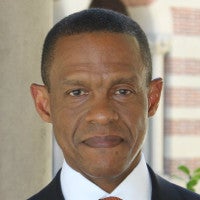 Candidates have raised concerns about maintaining strong national security after attacks in Paris and San Bernadino. Some politicians have called for a ban on refugees from Syria amid fears that members of ISIS would infiltrate the country and conduct attacks on Americans.
Candidates have raised concerns about maintaining strong national security after attacks in Paris and San Bernadino. Some politicians have called for a ban on refugees from Syria amid fears that members of ISIS would infiltrate the country and conduct attacks on Americans.
“It is important to remember that while we have become focused on the threat of immigrants with nefarious intent, 2015 was the deadliest year for homegrown extremist killers in the U.S. since the 1995 Oklahoma City bombing.”
Erroll Southers is the associate director of Research Transition in the National Homeland Security Center for Risk, Economic Analysis and Terrorism Events (CREATE). He is an adjunct professor of Homeland Security and Public Policy at the USC Price School of Public Policy.
Contact: (213) 740-3861, (323) 816-8045 or southers@usc.edu
Health care
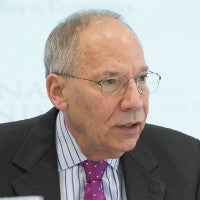 Some candidates talk of amending or repealing the Affordable Care Act, a.k.a. Obamacare. Paul Ginsburg, a USC expert on health care policy based in Washington, D.C., foresees changes to the law, but not its demise.
Some candidates talk of amending or repealing the Affordable Care Act, a.k.a. Obamacare. Paul Ginsburg, a USC expert on health care policy based in Washington, D.C., foresees changes to the law, but not its demise.
“The core of the ACA, which is expansion of Medicaid eligibility and subsidies for low-income persons to purchase private health insurance, is here to stay because of the millions of people who have gained coverage through it. But it will certainly change in 2017 because Democrats see shortcomings that need fixing, and Republican policy thinkers have ideas for larger changes.
“Republicans might even change the name to fulfill promises to ‘repeal and replace,’ but the core will continue. The ACA at its heart reflects Republican thinking about using the private sector to expand health insurance. It most closely resembles a plan that Republican Senators developed as an alternative to the Clinton proposal, so those truly committed to expanding coverage will not replace it with something radically different.”
Ginsburg is the director of public policy for the USC Schaeffer Center for Health Policy and Economics, holds the Norman Topping Chair in Medicine and Public Policy, and is a professor at USC Price School of Public Policy.
Contact: paul.ginsburg@usc.edu or call Emily Gersema at (213) 361-6730
Tax Policy
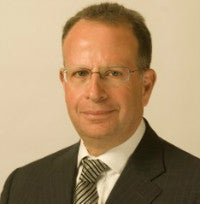 “The candidates love to argue about tax policy. But that really isn’t the right question. What we should care about is fiscal policy — that is, the net of government taxing and spending. After all, government is not in the business of simply taxing us and throwing away the money. It’s in the business of spending the money and financing that spending.”
“The candidates love to argue about tax policy. But that really isn’t the right question. What we should care about is fiscal policy — that is, the net of government taxing and spending. After all, government is not in the business of simply taxing us and throwing away the money. It’s in the business of spending the money and financing that spending.”
Edward Kleinbard, a professor of law at the USC Gould School of Law, is an expert on federal tax policy, tax aspects of health care and financial markets, and international taxation.
* His video presentation on government spending and tax policy is here.
Contact: (213) 740-4582, or (917) 287-4897, or ekleinbard@law.usc.edu

